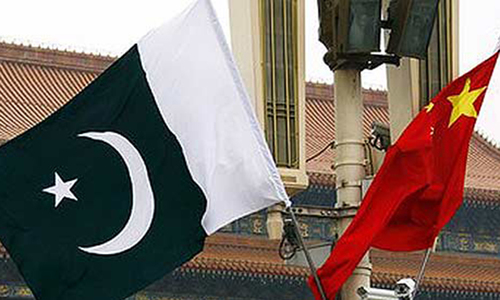ISLAMABAD: The merchandise trade deficit rose nearly 35 per cent year-on-year to $20.202 billion in the first eight months of the current fiscal year.
The trade deficit has been on an upward trajectory for many years owing to the liberalisation of the import regime while exports continue to remain stagnant.
In 2000-01, Pakistan’s trade deficit was $1.527bn, which rose to $22.159bn in 2014-15. The import bill was $45.826bn in 2014-15. The deficit stood at $2.807bn in February, a rise of 87.88pc from a year ago, the Pakistan Bureau of Statistics (PBS) data showed on Saturday.
In case the trend remains the same, the trade deficit will reach $28bn by the end of June. This will be the highest-ever trade deficit in the country’s history.
The drop in exports, along with a fall in remittances, has contributed towards the rising current account deficit in this fiscal year.
In July-Feb, the overall import bill rose 15.99pc year-on-year to $33.520bn. In February alone, it increased 35.52pc to $4.445bn.
Machinery imports are on the rise because of an increase in infrastructure investment, especially the construction of roads.
Export proceeds during the eight-month period fell 3.90pc to $13.318bn. In February, however, export proceeds dropped 8.29pc mainly because of an increase in exports of textile and clothing. Exports of garments and other value-added products to Europe have started picking up under the GSP+ preferential tariff scheme.
Under a three-year Strategic Trade Policy unveiled last year, the government set an annual export target of $35bn by 2018. However, the policy, announced in April 2016, has yet to be implemented.
Under the Strategic Trade Policy 2015-18, the Ministry of Commerce notified five cash support schemes to improve product design, encourage innovation, facilitate branding and certification, upgrade technology for new machinery and plants, provide cash support for plant and machinery for agro processing and give duty drawbacks on local taxes.
To minimise the chances of corruption, the government decided to disburse the subsidy through the State Bank of Pakistan (SBP). “Not a single claim was received for the disbursement in the last eight months,” an official of the commerce ministry said. The official blamed it on the cumbersome procedures involved.
Analysts say exports can only be increased by state intervention at the institutional, policy and entrepreneurial levels. The performance of the government was dismal at all levels.
The government had yet to initiate reforms in the trade-related departments as policy formulation was awaited in many areas.
The only area in which the government intervened to gain political mileage was the award of subsides to entrepreneurs.
In this regard, the prime minister announced a Rs180bn subsidy package for the textile, clothing, sports, surgical, leather and carpet sectors. The package will be applicable until June 30, 2018.
Published in Dawn, March 12th, 2017














































